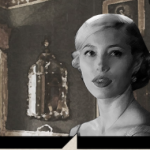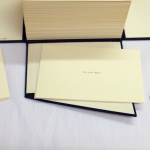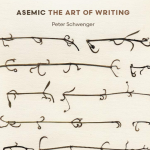electropoetics
When Error Rates Fail: Digital Humanities Concepts as a Guide for Electronic Literature Research

How do we think about things — like electronic literature — that combine the operational aspects of computing systems with the affective and representational aspects of the arts? We could view them through the frameworks of computer science, the literary arts, or critical interpretation. These can all be valuable. But they are all, inevitably, partial. Wardrip-Fruin proposes that digital humanities frameworks can provide a way of thinking about the dual elements of electronic literature simultaneously. Here he provides a case study: a strand of research that is both in computational approaches to social simulation and in the creation of works that build upon, and guide the development of, these simulations. He discusses the digital humanities concepts of operational logics and playable models that help him and his collaborators understand their work as they carry it out.
From Analog Shuffle to Digital Remix: Translating Robert Grenier’s Sentences

Presenting the writerly and highly remixable analog edition as both pre- and proto-digital, Carly Schnitzler revisits Robert Grenier’s Sentences. She compares the analog version of “shuffle literature” (in choosing the term, she follows the footsteps of Nick Monfort and Zuzana Husarova), published as five hundred index cards stored in a box, with its 2003 digitized edition. Such comparison serves to set the ground to investigate further the potential for writerly literary forms of what Lawrence Lessig once described as Read/Write culture, beyond the analog/digital dichotomy. The detailed and attentive analysis proposed by Schnitzler leads to somewhat surprising conclusions, where the algorithmically driven automatic choices present far less potential for meaningful and open-ended interaction with the text. Simultaneously, all the nuances surrounding the relatively early efforts at rendering Sentences as an object of networked reading are demonstrated here, including hints on digitization as a practice with its own history.
“Tracing the Ineffable”:a review of Peter Schwenger’s Asemic: the Art of Writing

In this review of Asemic: The Art of Writing, Diogo Marques considers alongside author Peter Schwenger the seemingly asemantic style of asemic writing as a genre taking on new meaning in contemporary reading and writing networks, particularly in light of the paradigm shifts they continue to undergo as brought about by digital media.
A Review of Stephanie Strickland’s Ringing the Changes

Sarah Whitcomb Laiola insightfully analyzes Stephanie Strickland’s recent poetry book, looking into how Strickland continues the tradition of poetic text generation, engaging at the same with material constraints resulting from 17th century pattern-ringing. The practice consists of competing teams ringing church bells based on highly complex mathematical patterns. Building on these, the poet and her team created elaborate and complex algorithms that generate the poetry woven out of textual data harvested from writings of Sha Xin Wei, Simone Weil, Hito Steyerl, and Yuk Hui among others. Written with Python code, the work demonstrates the powerful “poetics of juxtaposition”, where the list of names of Black men and women subjected to state-sanctioned violence strongly resonates throughout the whole texts.
Ethics and Aesthetics of (Digital) Space: Institutions, Borders, and Transnational Frameworks of Digital Creative Practice in Ireland

Discussing the works of three digital creative practitioners working in Ireland, Anne Karhio situates Ireland itself as a case study for demonstrating the ways in which electronic literature as a seemingly global and transnational practice can confront the complexly situated realities of everyday embodiment, technological materiality, and politicization of national borders. She thus recommends electronic literature be seen as more crucial part of digital arts and humanities research in Ireland and elsewhere.